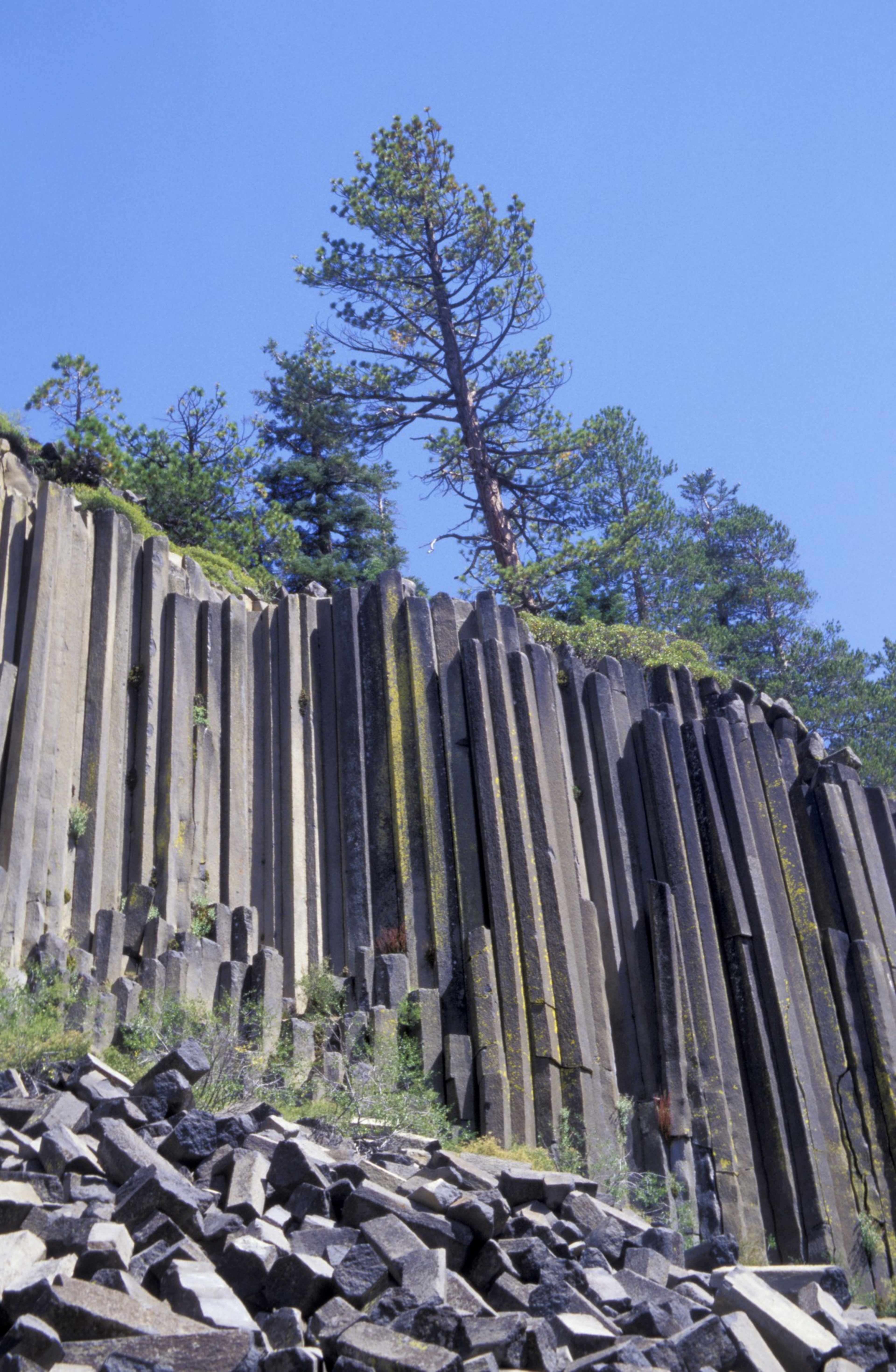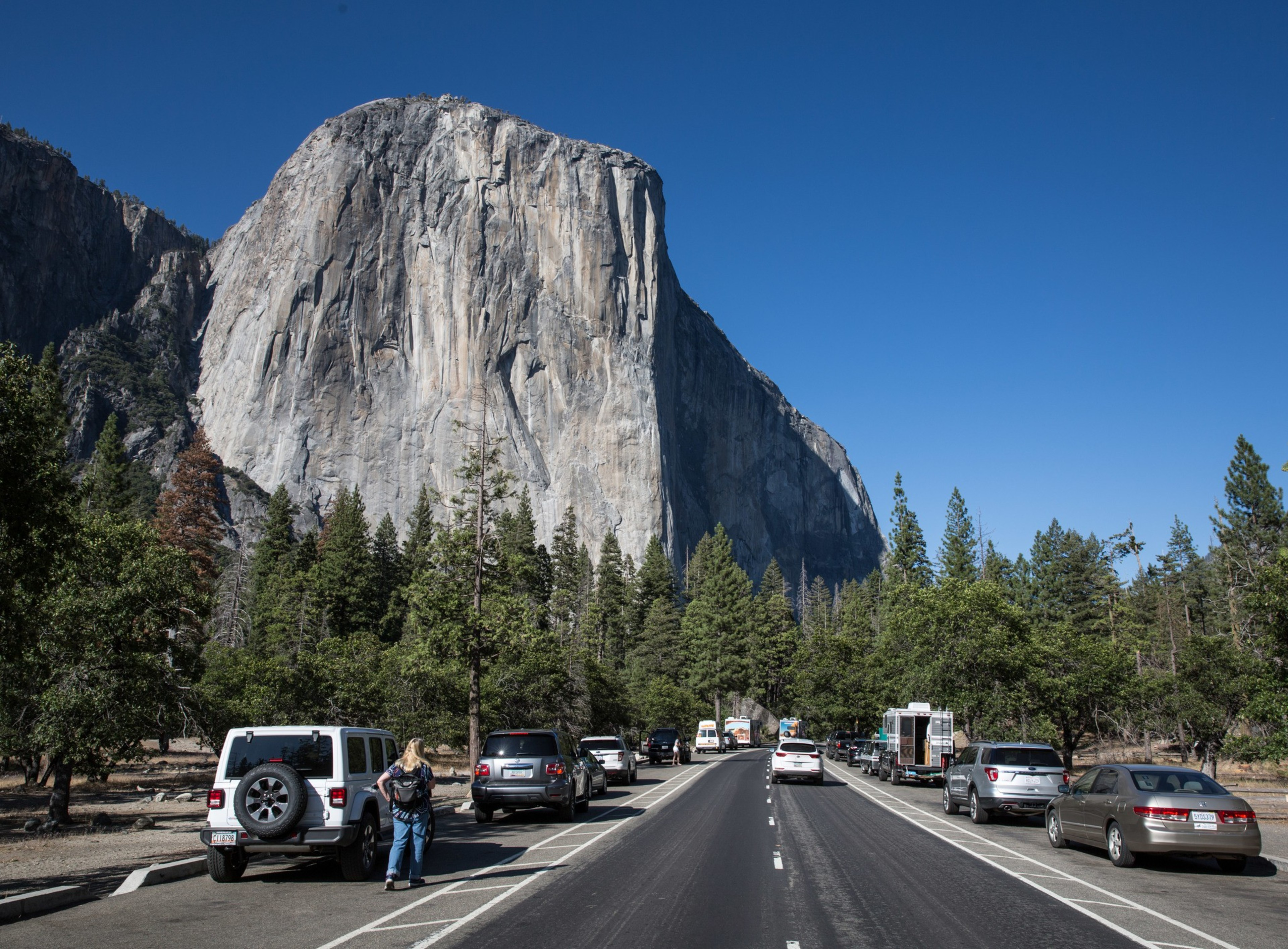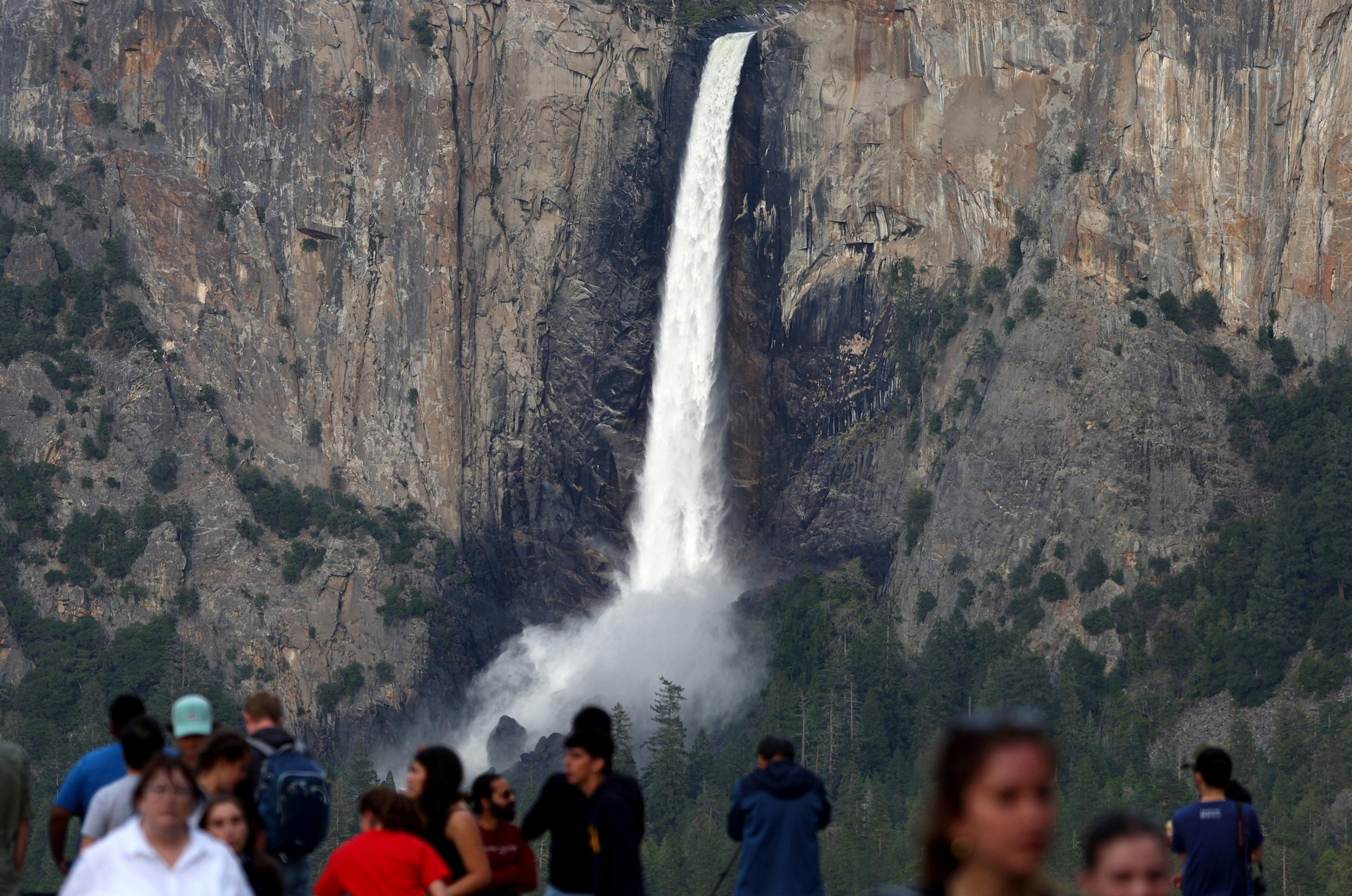Emergency medical technician Alex Wild landed his dream job last April as a park ranger in the Eastern Sierra. After four years as a seasonal wilderness ranger at Yosemite National Park, Wild transferred to Devils Postpile National Monument (opens in new tab), a massive formation of hexagonal basalt columns that is visited by 135,000 people per year. On Sunday, he was fired.
Wild was among the 800 to 1,000 rangers, custodians, locksmiths, and biologists at the National Park Service who lost their jobs over the weekend as part of President Donald Trump’s reduction of the federal workforce. (opens in new tab)
“This was my dream job,” Wild said, “but the part that breaks my heart is what’s going to happen to the physical parks themselves.”
With fewer workers handling reservations at California parks, campsites will become harder to book. With fewer people maintaining them, restrooms and other facilities will become dirtier and fall into disrepair. Institutional knowledge acquired over decades will be lost. And with fewer trained EMTs assigned to the parks, it will be more dangerous for Americans to visit the great outdoors.
Trump’s executive order was supposed to spare emergency personnel, but Wild was swept up anyway. While much of his work as a park ranger involved handing out maps, “I’m the only one in [Devils Postpile] that does emergency response and medical stuff,” he said.

During the high season, Wild was called once or twice a week to assist someone in trouble. Even Yosemite, which maintains a larger search-and-rescue team to handle up to 4 million annual visitors (opens in new tab), has left positions unfilled. While a bad fire season could mean catastrophe, the human consequences may be felt before that.
“If you visit a park this summer, you have to be prepared to self-rescue,” Wild said. “Hopefully, we can get to you. But people should be prepared to treat it like a wilderness area, and manage your own emergency.”
Crisis in the ‘center of the universe’
National Park Service employees often move from agency to agency and posting to posting. Most who were caught up in the executive order’s sweep lost their jobs because, like Wild, they were within the 12-month probationary period at the start of a new position.
Approximately a dozen people at Yosemite lost their livelihoods in the past few days. According to social media posts, one was a first responder (opens in new tab) awaiting a background check to start a new post; another was the park’s only locksmith (opens in new tab). Many lost housing. There is evidence to suggest that for-profit concessionaires like food-service giant Aramark (opens in new tab) may fill the void. Representatives of Yosemite, Devils Postpile, and the National Park Service did not respond to requests for comment.
“These are dedicated public servants who may have started a new career,” said Jesse Chakin, a 20-year Yosemite ranger who now runs a foundation that raises money for the park service (opens in new tab). “They’re not recent college grads.”
Meanwhile, on Wednesday night, Trump ordered the downsizing of the Presidio Trust, the body that manages the 1,500-acre former San Francisco military base that’s part of Golden Gate National Recreation Area.

Also let go this week was Olek Chmura, an author (opens in new tab) who was a custodian in Yosemite’s Wawona district (opens in new tab), earning $40,000 a year. Chmura was drawn to the park because “as a rock climber, Yosemite is the center of the universe for us. The granite walls are unlike anywhere else on Earth.”
Chmura and Wawona’s only other custodian, a 40-year-old Navy veteran, were fired for “poor performance.” Their dismissal, Chmura said, means not only a park with more trash, but one where visitors have more unwanted encounters with bears, skunks, and other wildlife the custodians worked to keep away.

Chmura was offered the deferred-resignation buyout program that some 70,000 federal workers accepted. He refused out of skepticism that he would ever see the money. “A ton of people are going to get stiffed,” he said. “Elon [Musk]’s done that to his Twitter employees, and I’m not going to let them win.”
Mismanagement of climbing’s “center of the universe” due to job cuts also means risks to its biodiversity. Wild is especially worried about the impact of firing the two-person research team that observed the Pacific fisher (opens in new tab), a weasel-like carnivore whose habitat has been reduced to isolated pockets in the West. “I’ve volunteered with them and seen them save this species,” Wild said.
He is holding out hope that he may get his job back. “I’m still appealing it,” he said. His boss informed superiors that Wild was Devils Postpile’s only EMT. They fired him anyway.
